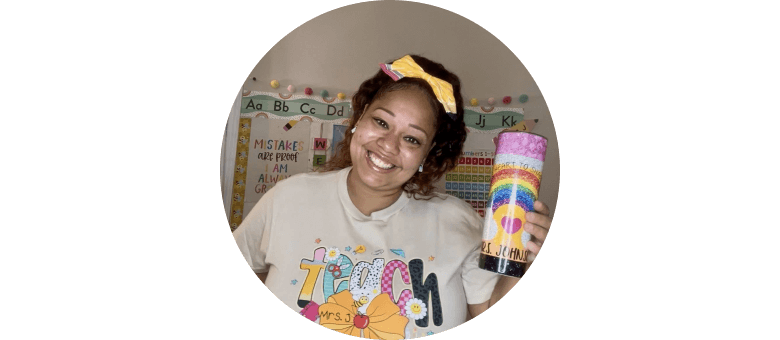-
THANK YOU TO OUR SPONSOR: Join Homeschool Village Sisterhood for mom support & strength. Use code HQMOM5 for exclusive savings!
By Terri Johnson of Bee-lieve Academy
Hey there, fellow superhero moms! If you're anything like me, you've embarked on the wild adventure of homeschooling with a mix of excitement and a dash of trepidation. Fear not, because in this blog post, we're diving headfirst into the magical world of keeping our younger bundles of joy happily engaged while we rock the homeschooling game. From babies to preschoolers, we're about to unwrap a treasure trove of tips and tricks that'll make your homeschooling journey a breeze. So, grab your coffee (or that sneaky piece of chocolate) and let's dive into some creative and effective activity ideas that strike the perfect balance.
I ventured into homeschooling amidst the pandemic while working from home. Ensuring a quality early childhood education for my toddler was paramount. Initially, teaching my preschooler and tending to my baby was manageable. But as my baby grew, I needed new ways to engage him effectively. With guidance from seasoned homeschooling moms and some trial and error, I found my stride. Fear not, super-parent – you've got this!
Prioritize Quality Time:
Dedicate individual time to your children before starting lessons. Showering attention before the teaching begins can extend their independent playtime. For instance, reading to your older child while having the younger one on your lap allows them both to feel included.
Involve Younger Children:
Instead of excluding them, invite your younger child into your moment. When they seek attention, acknowledge them and promise to address their needs momentarily. This inclusionary approach lessens their frustration and nurtures a sense of belonging. Young children love to help! Instead of simply entertaining them, give them a job to do. It makes them feel important, teaches responsibility, and also lightens your load just a little. I like to buy a little broom and dust pan from the Dollar Tree, so my preschooler can “clean” the house. Another one of my favorite tasks is sorting socks out of the clean laundry. Sorting is not only life skills but teaching math skills, too!
Craft Collaboration:
Integrate your older child's lessons with the younger one's playtime. Choose simple craft projects related to the older sibling's subjects, allowing the younger child to participate and learn.
Prepared Activities:
Be mentally prepared and gather various engaging activities. Maintaining a calm demeanor while handling interruptions sets a powerful example. Preparedness minimizes stress, so keep a variety of calming activities handy, like busy bins or bags.
Structured Schedule:
Create a consistent schedule for your younger child, fostering predictability and control, which reduces behavior issues. Allow them to participate in tasks, promoting a sense of responsibility and accomplishment.
Engaging Activities:
Offer tasks that make younger children feel important and aid their development. Tasks like "cleaning" with a small broom or sorting laundry teach valuable skills while keeping them occupied.
Diverse Activities:
Employ activities such as Play-Doh, lacing cereal, and building with large Legos. Books, bubbles, finger paints, and sensory play like a DIY paint setup are also fantastic options.
Sensory Playtime:
Utilize sensory bins with materials like rice, pasta, and water beads, enhancing cognitive and motor skill development. Make them taste-safe for babies and contain the mess effectively.
Music and Movement Breaks:
It is recommended to take a 10-15 minute break every 45 minutes of school work to engage the little ones and give your homeschooler a brain break. Play catchy tunes and dance together. Not only does this give your older child a break, but it also helps your younger one release some energy and have fun. Brain breaks are also a perfect time to tend to the younger kids (change diapers, get a snack, etc) while the older child does independent work. Netflex Kids has a treasure trove of brain breaks that are popular on YouTube.
Online Preschool:
Incorporate well-selected online educational programs to engage your younger child's learning. Opt for options that encourage creativity, critical thinking, and language development.
Snack and Naptime:
Keep snacks and drinks ready for uninterrupted learning, and consider teaching during naptime for focused sessions. Enlist your village's help when possible, involving older siblings or family members.
Finding Harmony:
Combining education and activities creates a harmonious balance between teaching and childcare. Embrace the chaos, adapt as needed, and treasure the moments of learning, laughter, and love.
Embrace Your Role
Homeschooling with younger children requires creativity, patience, and flexibility. By blending learning and engaging activities, you can strike a balance that benefits both age groups. Remember, you're not alone – a tribe of parents have weathered this journey before. Embrace the chaos, adapt your routine, and cherish the moments shared with your growing family. You're a homeschooling hero, and your children are fortunate to have you!
Read More!
- Log in to post comments



